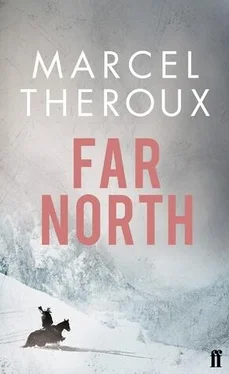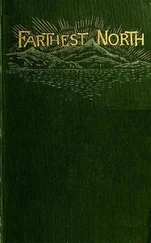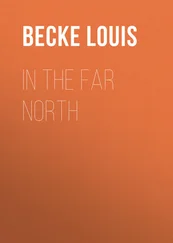Boathwaite stood on a ledge high up on the wall of the stockade. He was dressed in a black surplice and he had his Bible tucked under his arm.
Just through the gateway, I could see men on horseback waiting for me.
Boathwaite never met my eye. He called on my guards to stop and he led his people in a prayer, entrusting me into god’s care and calling on him to be merciful to me.
As their voices mumbled away, I took a good look around me. It was coming up to April and you could smell the world coming back to life after winter. The floor of the stockade was melted to slush. It seemed a long way since all the hope of the spring before.
They finished their prayer with a throaty amen.
‘And god have mercy on you ,’ I cried. It had been boiling up inside me throughout the prayer and it burst out in a crazed howl. It was so loud it split the air like a rifle crack, and those nearest to me flinched. But others muttered, ‘How dare she?’ and pushed towards me, not so much violently, but with the steady menace of a herd of cows that could trample you to death.
The guards dragged me on and I staggered, falling to my knees in the mud. They heaved me up and pushed me forward, through the gateway, and stopped, leaving me to walk on alone.
One of the men on horseback swung down from his saddle and slipped a rope through the loop on my belt.
He was practised and indifferent, as though he was wrangling livestock or shoeing horses. Then he was back in the saddle and gave his horse a whistle.
I worried that I wouldn’t be able to keep up, that I would fall in the slush and be dragged, but they walked on slowly. Even then it was hard work to stay with them.
They rode along the track through the woods, to where it broke out onto the main road — the place I’d come upon the men logging a lifetime earlier.
I was weak from bad food and being cooped up in one place, and after each set oua dozen paces, I’d think I wasn’t going to be able to make another. ‘The flesh is weak,’ they say. Me, I say the flesh is strong, but the mind is weak. It’s the mind that hisses at you to give up, lay in the snow. Only women know what the body is capable of. Pain that feels like it will tear you in half, but doesn’t.
So while my muscles cried out at me, I staggered on, counting my breaths, trying to rise out of my mind. At first I tried too desperately, and my thoughts had a sense of panic about them and wouldn’t settle in one place, because I was snatching at anything.
But then a kind of peace came over me. I lost track of my footsteps and gave myself up to the motion.
The woods were silent except for the tick of melting snow and I thought we were alone, but as we turned onto the road, we came upon a big crowd of people camped right there on the highway.
They were crouched down on their haunches, trying to rest and hold their clothing clear of the slush. One or two you could see were more hopeless and lay flat out exhausted in the wet, not caring how they would feel about it later.
Around them a dozen men slouched on horseback.
The captives were chained together in groups of ten.
One of my guards gave a whistle, and the group nearest to me stood up. The rider hopped down and padlocked me to the last man in the group, a fellow of about fifty with a matted beard and a worn rabbit fur cap. No one spoke.
The riders made the other prisoners stand and then positioned themselves along the flanks of the line and waited.
Finally, someone broke off from the front and rode up and down the line checking that everything was to his satisfaction. He barely glanced at me, but as he turned to ride up the other flank, I saw his face and recognized him as the man I had encountered on the highway outside my own city.
He galloped fast to the front of the caravan which lay almost sixty yards away from where I stood.
My companion turned to me as though he wanted to say something, but with a shout we were in motion, and we saved all our breath for walking.
THE PLACE THEY called the base lay almost a thousand miles west of Evangeline, close to a tributary of the Lena.
We didn’t reach it until past midsummer. All that time we were just banging down the road, minding our blisters.
If anything, it was more desolate than the road to the east. We didn’t see a soul, just bleached bones on the road and deserted settlements beyond it.
They lightened our chains to keep us moving quicker and to save on food: each link of chain cost something in flour to carry.
The caravan travelled with its own food. The covered wagons carried sacks of flour which they mixed into porridge or cooked into griddlecakes for the prisoners.
Our guards broke off to hunt sometimes, and at night the smell of their meat cooking kept us awake, teasing our noses with the smell of burned flesh.
If you were quick enough at the reveille, there might be some scraps to chew on, bones or gristle to remind you what real food tasted of.
The man beside me was a Mohammedan called Shamsudin. Five times a day he’d crouch, wash his hands in the dust and aim himself to pray at Mecca, or where it used to be.
He’d been pals with a fellow called Zulfugar, but when any prisoners looked like they were getting too friendly the guards separated them to different ends of the line. How they thought any of us would survive with our bare hands, carrying twenty pounds of chain, in that wilderness, I don’t know, but they put me next to Shamsudin to break the two of them up.
The guards watched us pretty closely, so I had to glean information out of him a piece at a time. One day, crouching down beside him in the dust at one of the water stops, I found out that he was forty-six and that he had been born in Bokhara, one of the old silk cities in the south. He left to train as a surgeon in the Far East and returned to work at a hospital back in his home town.
He had been a wealthy man and had managed to bribe his way north when the troubles started.
I told him that from what I had observed, it only took three days before desperation and hunger overturned all civilized instinct in a person. He smiled and said I had a bleak view of human nature, and that in his experience, it was nearer to four days.
His chains clanked as he scooped up the water in his hands.
I asked him what kind of surgery he had done.
‘Noses,’ he said, and there was just the trace of a smile.
‘You were a nose surgeon?’
‘I made women more beautiful.’
‘Don’t muslim women go covered up anyway?’ I said, and he laughed.
The guards rode past, and chivvied us to move on. We ambled on, all eighty of us, getting into motion slowly like one big reluctant animal.
‘I don’t suppose you could do anything for me,’ I whispered to him with a wink.
‘There is nothing wrong with your nose.’
‘I wasn’t thinking of my nose.’
‘What were you thinking of?’ he asked, deadpan.
‘You’re very gallant,’ I said.
He looked me over carefully, as though it was the first time he had noticed anything odd about me. ‘An acid burn, I think?’
‘It was lye, but you were close.’
‘Yes, this is easy to treat. We use chemicals to restructureepidermis. I would take skin from your thigh to reconstruct the eyelid. I could make you even more beautiful.’
That was the nearest I came to laughing. You could see how he’d got rich — charming the cash out of wealthy women. It meant something to me that he knew I wasn’t a man.
There was a gentlemanly way about Shamsudin. He wore his rags well, and when he ate, he didn’t wolf his food the way we all did, tearing at it and burping. He ate elegantly, breaking off morsels of food with his long fingers, rolling it into little balls and eating them one by one. I started to do the same — apart from anything, the food went slower that way and so there seemed to be more of it.
Читать дальше












